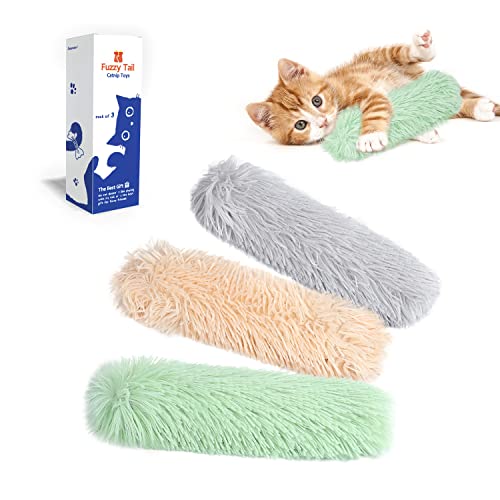Is Benadryl safe for cats?
As a dedicated cat lover, it’s important to ensure the well-being of your furry friend. When our cats experience discomfort, whether it’s from allergies, insect bites, or even motion sickness, it can be concerning. That’s why it’s natural to wonder if Benadryl, a commonly used antihistamine for humans, is safe for cats too.
Before deciding to give your cat Benadryl, it’s crucial to understand the potential risks and benefits. While Benadryl can be safe for cats in certain cases, it’s essential to consult with a veterinarian first. They can provide personalized advice based on your cat’s specific needs and medical history.
Vets may recommend Benadryl for cats in some situations, such as allergic reactions or itching caused by insect bites. However, it’s important to note that Benadryl isn’t a magic solution for all feline ailments. It’s always best to seek professional guidance to ensure the appropriate treatment for your cat’s unique situation.
When it comes to dosage, never guess or estimate on your own. Different factors, such as your cat’s weight and health condition, play a role in determining the correct dosage. Your veterinarian will be able to determine the appropriate dosage and frequency of administration for your cat.
While Benadryl can help alleviate discomfort in cats, it’s crucial to be aware of potential side effects. Cats may experience drowsiness or gastrointestinal upset, among other rare side effects. Your veterinarian will advise you on what to watch for and how to handle any potential adverse reactions.
While Benadryl can be safe for cats in certain situations, it’s vital to consult your veterinarian before administering any medications. They will help assess your cat’s condition and provide guidance on the appropriate use, dosage, and possible side effects of Benadryl. Remember, your cat’s well-being is best left to the experts.
Benefits of Benadryl for cats
As a cat lover, you want the best for your feline friend. Sometimes, your furry companion may experience allergies or other pesky conditions that make them uncomfortable. That’s where Benadryl can come in handy!
- Relieving Allergies: Cats can suffer from allergies, just like humans. Benadryl can help alleviate itching, sneezing, and other allergy symptoms that can make your cat miserable. It’s important to consult with your veterinarian to determine the right dosage for your cat.
- Managing Insect Bites and Stings: Cats can get bitten or stung by insects while exploring the great outdoors. Benadryl can help reduce swelling and itching caused by bug bites or stings, making your cat more comfortable.
- Soothing Skin Irritations: Some cats may develop skin irritations or rashes due to allergies, dermatitis, or other conditions. Benadryl can help soothe the skin and minimize discomfort, giving your cat relief from itchiness and irritation.
- Calming Effects: In some cases, Benadryl can have a mild sedative effect on cats. This can be beneficial if your cat is anxious during travel, vet visits, or other stressful situations. Just remember to consult with your veterinarian for appropriate dosage and usage.
Remember, while Benadryl can be helpful for certain cat ailments, it is essential to consult with your veterinarian before administering any medication. They will be able to evaluate your cat’s specific needs, provide the correct dosage, and monitor for any potential side effects.
Now that you know the benefits of Benadryl for cats, you can take better care of your feline friend and help them feel more comfortable in their own furry skin.
Dosage of Benadryl for cats
As a cat lover and enthusiast, you always want to ensure that your feline friend is happy and healthy. Sometimes, though, cats can experience allergies, insect bites, or skin irritations that require some extra help. This is where Benadryl can come in handy. But, it’s essential to know the correct dosage for your furry friend.
Consulting with a veterinarian is crucial before giving your cat any medication, including Benadryl. Your veterinarian will be able to accurately determine the right dosage based on your cat’s size, weight, and overall health. Remember, what works for humans may not be safe or effective for cats.
Typically, the recommended dosage of Benadryl for cats is 1 mg per pound (2.2 mg per kilogram) of body weight. However, it’s crucial to note that this is just a general guideline and may vary depending on your cat’s specific needs. Your veterinarian will provide you with the precise dosage and instructions tailored to your cat.
It’s important to remember that Benadryl comes in different strengths and formulations. Your veterinarian will recommend the most suitable type for your cat, such as liquid, tablet, or injectable. Do not attempt to guess or estimate the dosage on your own, as it can lead to incorrect administration and potential harm to your cat.
When administering Benadryl to your cat, give it orally. It’s best to mix the medication with a small amount of wet food to ensure that your cat fully consumes it. Always follow the exact dosage and frequency recommended by your veterinarian. Remember, too much medication can be dangerous for your cat, so do not increase the dosage without professional guidance.
It’s crucial to consult with your veterinarian to determine the appropriate Benadryl dosage for your cat. Remember to always follow their instructions carefully. By doing so, you can help alleviate your cat’s allergies, insect bites, or skin irritations and ensure their well-being without any guesswork.
Potential side effects of Benadryl for cats
When it comes to your feline friend’s health, it’s essential to be aware of any potential side effects of medications. While Benadryl can be beneficial for cats, it’s crucial to keep in mind that it may have some side effects. Here are a few things to consider:
- Drowsiness: Just like in humans, Benadryl can make cats feel sleepy. It’s normal for your furry companion to take a snooze after taking a dose. So, make sure to provide a cozy and comfortable spot for them to rest.
- Dry mouth: Benadryl can cause cats to have a dry mouth. They might start drinking more water or seem thirstier than usual. Ensure there’s plenty of fresh water available for them to stay hydrated.
- Urinary retention: In some cases, Benadryl can affect a cat’s ability to urinate. If you notice your cat having difficulty or straining to urinate after taking Benadryl, contact your veterinarian for guidance.
- Excitability: While most cats may experience drowsiness, a small percentage might react differently and become more excitable or agitated. Pay close attention to your cat’s behavior after administering Benadryl to ensure they are comfortable.
- Vomiting or diarrhea: In rare cases, cats might experience an upset stomach and show signs of vomiting or diarrhea after taking Benadryl. If these symptoms persist or worsen, it’s important to seek veterinary advice.
Remember, every cat is unique, and their reaction to Benadryl may vary. It’s crucial to consult with your veterinarian before giving any medications to your fur baby. They can provide specific dosage instructions based on your cat’s health needs and guide you through any potential side effects.
Administering Benadryl to your cat can help alleviate allergies, insect bites, or skin irritations, but it’s essential to be informed and cautious. Keep a close eye on your cat and reach out to your veterinarian if you have any concerns or questions. With proper care and attention, you can help your feline companion feel better and maintain their well-being.
Remember, the well-being of your cat is our top priority. Always consult your veterinarian for professional advice.
Conclusion
When it comes to giving your cat Benadryl, it’s important to be aware of the potential side effects. As mentioned in the article, drowsiness, dry mouth, urinary retention, excitability, and vomiting or diarrhea are some of the possible reactions your cat may experience. That’s why it’s crucial to consult with your veterinarian before administering any medications.
Remember, your cat’s health and well-being should always be your top priority. If you do decide to give your cat Benadryl, make sure to follow the tips provided in the article to ensure safe administration. Keep a close eye on your cat and if you notice any unusual symptoms or reactions, don’t hesitate to seek veterinary advice.
By being informed and taking the necessary precautions, you can help ensure the safety and comfort of your feline friend. Trust your veterinarian’s expertise and always prioritize your cat’s health when it comes to making decisions about medication.
Frequently Asked Questions
Q: What are the potential side effects of giving Benadryl to cats?
A: Benadryl can cause drowsiness, dry mouth, urinary retention, excitability, and vomiting or diarrhea in cats.
Q: Should I consult with a veterinarian before giving Benadryl to my cat?
A: Absolutely! It is important to consult with a veterinarian before giving any medications to cats to ensure safety and appropriate dosages.
Q: How can I administer Benadryl safely to my cat?
A: Follow your veterinarian’s instructions. Administer the medication in the correct dosage, give it with













